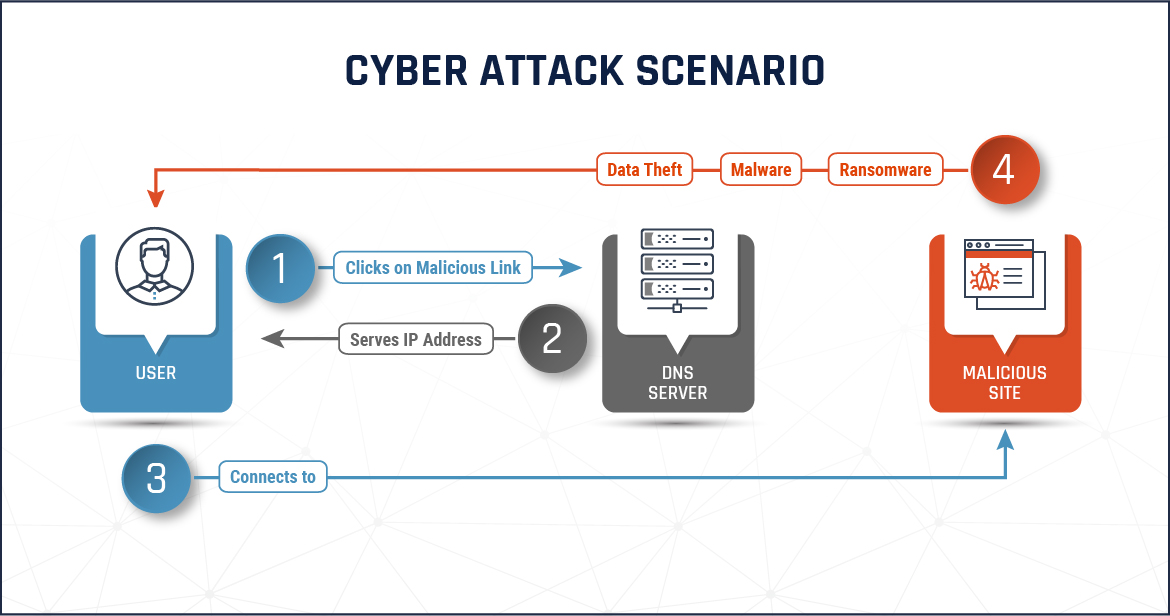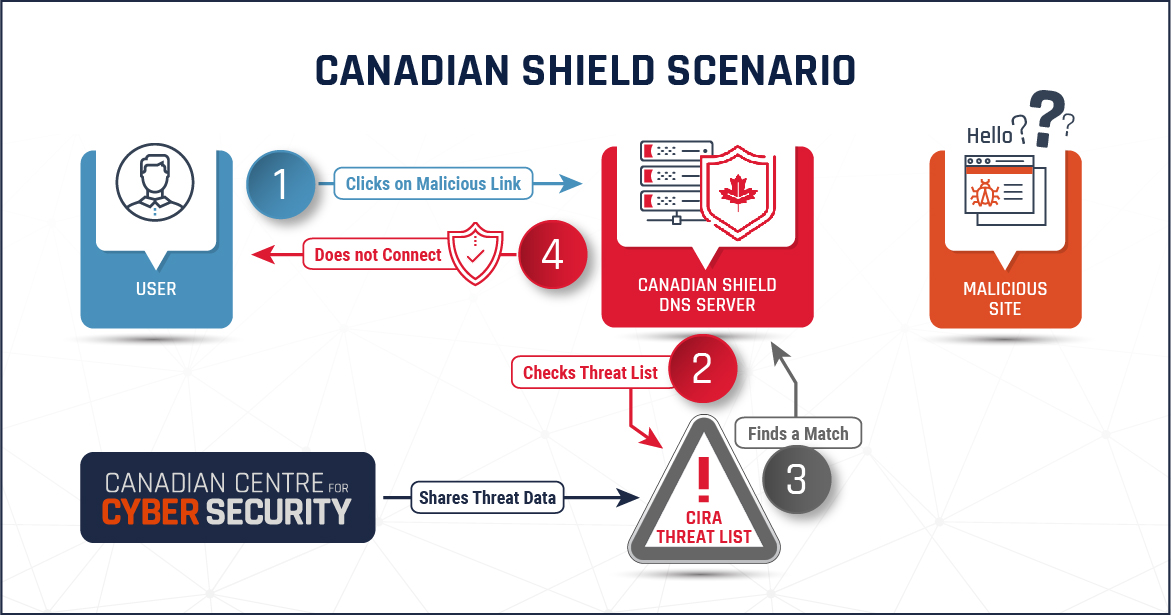Phishing attempts and fake websites related to COVID-19 are all on the rise, as cyber attackers try to take advantage of the global pandemic. The Cyber Centre has a mandate to raise the cyber security bar across the whole of Canada and ensure Canadians stay protected online.
Now, a new initiative from the Canadian Internet Registration Authority (CIRA) demonstrates how we are delivering on that mandate.
CIRA Canadian Shield is a free protected DNS service that prevents you from connecting to malicious websites that might infect your device or steal your personal information.
The service is provided by the Canadian Internet Registration Authority (CIRA), a not-for-profit agency that manages the dot CA internet domain. The service uses threat intelligence from the Canadian Centre for Cyber Security (the Cyber Centre).
Our work protecting Government of Canada systems gives us a unique understanding of the cyber threats that are out there. We make that threat intelligence available to outside partners, like CIRA, so that individual Canadians can benefit from it too.
What is a Domain Name System (DNS)?
Unless you have memorized every IP address of every website you want to visit, you are using a DNS server every time you connect to the web.
DNS is a protocol that translates user-friendly web addresses, such as “cyber.gc.ca”, into machine-readable IP addresses.
Think of it as a directory for the internet.
It takes a web address you type in or click on, figures out which IP address it corresponds to, and tells your device to connect to that IP address.
Why does DNS matter for cyber security?
Industry reports estimate that between 80% and 90% of cyber attacks leverage the DNS serverFootnote 1 . If a cyber attacker can get you to connect to a malicious website, they can infect your device with malware or steal your data.
But if your DNS operator knows the website is malicious, they can ensure the DNS server will not direct you to that site.
You are particularly vulnerable when connecting to public Wi-Fi, because it defaults to whichever DNS server the Wi-Fi operator has chosen.
If that DNS is compromised it might redirect you to malicious sites.
Canadian Shield is available for any computer, iOS or Android device, ensuring that you get directed to a protected Canadian Shield DNS server every time you connect to a new Wi-Fi.
Cyber Attack Scenario

Long description - Cyber Attack Scenario
- Step 1. User clicks on malicious link.
- Step 2. DNS server serves IP address to user.
- Step 3. User connects to malicious site.
- Step 4. Malicious site sends malware and ransomware to user, and steals the user's data.
Canadian Shield Scenario

Long description - Canadian Shield Scenario
- Step 1. User clicks on malicious link.
- Step 2. Canadian Shield DNS server checks threat list.
- Step 3. The CIRA Threat List finds a match with threat data shared by the Canadian Centre for Cyber Security.
- Step 4. Canadian Shield DNS server prevents user from connecting to malicious site.
Why does DNS matter for privacy?
To do its job, any DNS server has to look up the web addresses you try to connect to. As a result, the operator of the DNS server knows every site you try to visit. They can’t avoid it.
Some DNS operators monetize this data by selling it to advertisers. Some operators have servers that are based abroad and are subject to different data privacy laws.
CIRA Canadian Shield is the only free public DNS service that:
- has malicious content protection
- is run by a not-for-profit agency
- does not use or monetize your search data, and
- is 100% Canadian (owned and run, with all servers located in Canada)
This last point is important as it means any data on those servers is subject to Canadian privacy law.
And in case you were wondering, CIRA will not share any Canadian Shield user’s personally identifiable information (PII) with the Cyber Centre, and any PII on CIRA’s own servers will be anonymized within 24 hours (see their privacy policy).
CIRA will share anonymized statistics with us so we can see how frequently Canadian Shield blocks the web addresses on our threat list.
That in turn will help us strengthen the cyber security landscape for all Canadians both during and after the global pandemic.
Additional resources
To learn more about CIRA Canadian Shield and other Cyber Centre resources, please visit the following links: